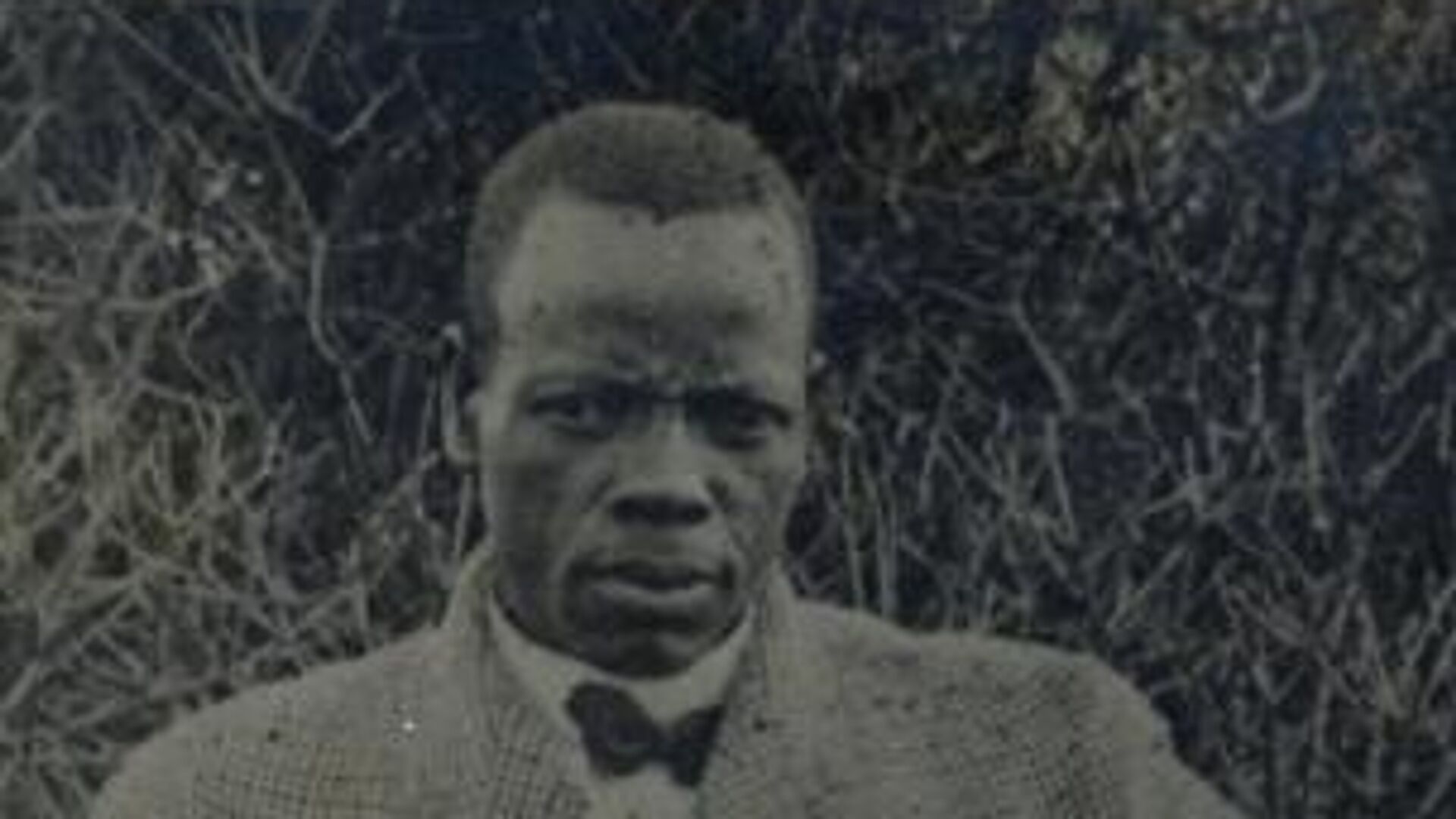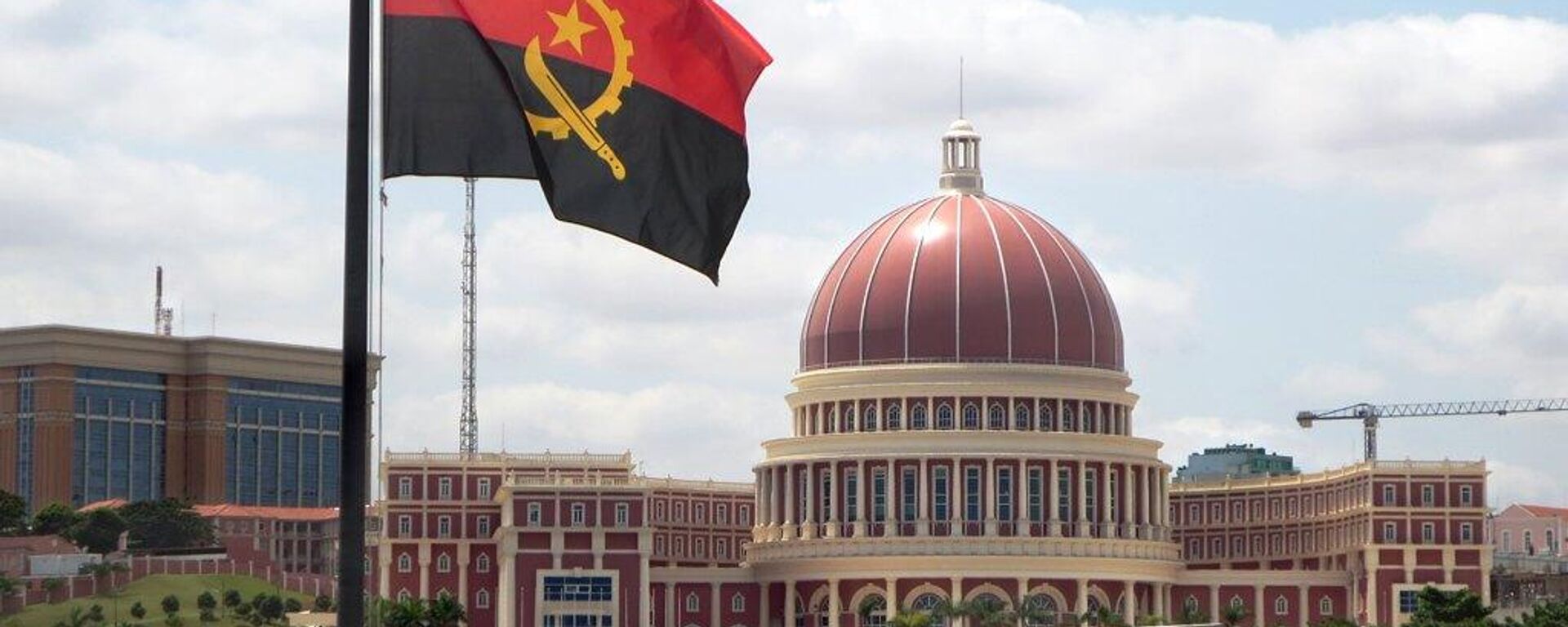https://en.sputniknews.africa/20240115/remembering-john-chilembwe-malawian-short-lived-revolt-that-sparked-long-anti-colonial-resistance--1064623517.html
Remembering John Chilembwe: Malawian Short-Lived Revolt That Sparked Long Anti-Colonial Resistance
Remembering John Chilembwe: Malawian Short-Lived Revolt That Sparked Long Anti-Colonial Resistance
Sputnik Africa
On January 15, Malawi, a country in southeast Africa, celebrates John Chilembwe Day, which honors reverend Chilembwe, who led the first nationalist revolt in... 15.01.2024, Sputnik Africa
2024-01-15T15:03+0100
2024-01-15T15:03+0100
2024-01-15T15:03+0100
features
malawi
sputnik africa
politics
united kingdom (uk)
scotland
colonialism
british colonialism
revolution
https://cdn1.img.sputniknews.africa/img/07e8/01/0f/1064625743_0:5:304:176_1920x0_80_0_0_bc9dbeed8d28a73d9553506478dd8d33.jpg
Born in 1871 in what later became the British Protectorate of Nyasaland, John Chilembwe received his early education from Scottish missionaries before pursuing his training as a Baptist minister in America, where he also completed his formal education.Upon his return to Nyasaland in 1900, he sought to advance African rights and opposed the colonial government. Chilembwe's motivation to protest against the British stemmed from the severe economic exploitation experienced by African laborers in the plantation system, coupled with the political oppression imposed on Africans by the colonial administration.Both the colonial authorities and the Scottish Presbyterian missionaries considered Chilembwe a threat due to his egalitarian beliefs on race. They feared that if these beliefs were implemented, it would destroy the entire colonial system.Chilembwe's StruggleChilembwe vigorously opposed the Church of Scotland and their Presbyterian missionaries; he advocated for the establishment of autonomous African Churches. Upon his return to Nyasaland, he established the Providence Industrial Mission in Mbombwe. Subsequently, he created a network of independent African educational institutions, together with a Cooperative Union known as the Natives' Industrial Union. In November 1913, Alexander Bruce, the owner of A. L. Bruce Estates, three largest agricultural estates in Nyasaland, issued an order to burn down all churches constructed on his property by Chilembwe or his supporters, as Bruce resisted any progress for Africans.In 1914, the outbreak of the First World War led to additional conflicts between Chilembwe and the colonial administration. A multitude of Africans were enlisted as porters for the colonial forces advancing towards German East Africa (present-day Tanzania, Rwanda, and Burundi) in the northern direction. Chilembwe was infuriated by the poor working conditions that resulted in the porters being subjected to elevated disease levels and mortality rates. Chilembwe was deeply disturbed by the fact that Africans were being recruited to fight for a system that denied them their rights and in a conflict that did not directly concern them. He lobbied for the exemption of Africans from military service based on these reasons, but his efforts were unsuccessful.The 1915 UprisingChilembwe's anti-colonial activities gradually became more radical and in 1915, after several months of planning, he led an uprising which began on January 23. The revolt attempt, however, was not successful.Chilembwe was shot dead by colonial troops on February 3, 1915. Furthermore, 300 rebels were imprisoned and another 36 were summarily executed by the colonial state. Although Chilembwe's rebellion was short and unsuccessful, it is often regarded as a wake-up call for colonialists in Nyasaland.Thus, as John McCracken, the editor of the book "Voices from the Chilembwe Rising: Witness Testimonies Made to The Nyasaland Rising Commission of Inquiry, 1915," put it, governor Sir George Smith perceived this revolt as a pivotal moment that created a new epoch in the history of Nyasaland. It implied that the authorities would need to enhance the efficiency of their police force. On the other hand, it also meant that they would have to implement a set of actions in order to address the genuine concerns of the African population.Chilembwe's Legacy and MemoryChilembwe's revolt acted as a source of motivation for anti-colonialists worldwide. He is now remembered as a prominent figure in Malawi and a trailblazing advocate against colonialism.In September 2022, a statue devoted to Chilembwe was installed on the Trafalgar Square in London. Samson Kambalu, a Malawian conceptual artist and the author of the monument, said that he was inspired by Chilembwe’s photograph from 1914 where the anti-colonialist was wearing a hat while standing next to his friend, a white European missionary of Zambezi Industrial Mission, John Chorley, thus challenging the colonial decree that prohibited Africans from having hats on in the presence of white people.Chilembwe's portrait is also featured on the Malawian two-thousand-kwacha banknote.
https://en.sputniknews.africa/20230917/angolas-national-heroes-day-first-president-a-cultural-symbol-for-all-generations-1062169273.html
malawi
united kingdom (uk)
scotland
Sputnik Africa
feedback@sputniknews.com
+74956456601
MIA „Rossiya Segodnya“
2024
Christina Glazkova
https://cdn1.img.sputniknews.africa/img/07e7/0b/07/1063380906_0:0:673:674_100x100_80_0_0_79628b4d0cd9f29291a57aa13bbf9e7a.jpg
Christina Glazkova
https://cdn1.img.sputniknews.africa/img/07e7/0b/07/1063380906_0:0:673:674_100x100_80_0_0_79628b4d0cd9f29291a57aa13bbf9e7a.jpg
News
en_EN
Sputnik Africa
feedback@sputniknews.com
+74956456601
MIA „Rossiya Segodnya“
Sputnik Africa
feedback@sputniknews.com
+74956456601
MIA „Rossiya Segodnya“
Christina Glazkova
https://cdn1.img.sputniknews.africa/img/07e7/0b/07/1063380906_0:0:673:674_100x100_80_0_0_79628b4d0cd9f29291a57aa13bbf9e7a.jpg
malawi, sputnik africa, politics, united kingdom (uk), scotland, colonialism, british colonialism, revolution
malawi, sputnik africa, politics, united kingdom (uk), scotland, colonialism, british colonialism, revolution
Remembering John Chilembwe: Malawian Short-Lived Revolt That Sparked Long Anti-Colonial Resistance
Christina Glazkova
Writer / Editor
On January 15, Malawi, a country in southeast Africa, celebrates John Chilembwe Day, which honors reverend Chilembwe, who led the first nationalist revolt in 1915 to protest forced labor and African involvement in the First World War. Sputnik Africa recalled the most important milestones in the life of Malawi's national hero.
Born in 1871 in what later became the British Protectorate of Nyasaland, John Chilembwe received his early education from Scottish missionaries before pursuing his training as a Baptist minister in America, where he also completed his formal education.
Upon his return to Nyasaland in 1900, he sought to advance African rights and opposed the colonial government. Chilembwe's motivation to protest against the
British stemmed from the
severe economic exploitation experienced by African laborers in the plantation system, coupled with the
political oppression imposed on Africans by the colonial administration.
Both the colonial authorities and the Scottish Presbyterian missionaries considered Chilembwe a threat due to his egalitarian beliefs on race. They feared that if these beliefs were implemented, it would destroy the entire colonial system.
Chilembwe vigorously opposed the Church of Scotland and their Presbyterian missionaries; he advocated for the establishment of autonomous African Churches. Upon his return to Nyasaland, he established the Providence Industrial Mission in Mbombwe. Subsequently, he created a network of independent African educational institutions, together with a Cooperative Union known as the Natives' Industrial Union. In November 1913, Alexander Bruce, the owner of A. L. Bruce Estates, three largest agricultural estates in Nyasaland, issued an order to burn down all churches constructed on his property by Chilembwe or his supporters, as Bruce resisted any progress for Africans.
In 1914, the outbreak of the
First World War led to additional conflicts between Chilembwe and the colonial administration. A multitude of Africans were enlisted as porters for the colonial forces advancing towards German East Africa (present-day Tanzania, Rwanda, and Burundi) in the northern direction. Chilembwe was infuriated by the poor working conditions that resulted in the porters being subjected to elevated disease levels and mortality rates. Chilembwe was deeply disturbed by the fact that
Africans were being recruited to fight for a system that denied them their rights and in a conflict that did not directly concern them. He lobbied for the exemption of Africans from military service based on these reasons, but his efforts were unsuccessful.
Chilembwe's
anti-colonial activities gradually became more radical and in 1915, after several months of planning, he led an uprising which began on January 23. The revolt attempt, however, was not successful.
Chilembwe was shot dead by colonial troops on February 3, 1915. Furthermore, 300 rebels were imprisoned and another 36 were summarily executed by the colonial state. Although Chilembwe's rebellion was short and unsuccessful, it is often regarded as a wake-up call for colonialists in Nyasaland.
Thus, as John McCracken, the editor of the book "Voices from the Chilembwe Rising: Witness Testimonies Made to The Nyasaland Rising Commission of Inquiry, 1915," put it, governor Sir George Smith perceived this revolt as a pivotal moment that created a new epoch in the history of Nyasaland. It implied that the authorities would need to enhance the efficiency of their police force. On the other hand, it also meant that they would have to implement a set of actions in order to address the genuine concerns of the African population.
Chilembwe's Legacy and Memory
Chilembwe's revolt acted as a source of motivation for anti-colonialists worldwide. He is now remembered as a prominent figure in Malawi and a trailblazing advocate against colonialism.
In September 2022, a statue
devoted to Chilembwe was installed on the Trafalgar Square in London. Samson Kambalu, a Malawian conceptual artist and the author of the monument, said that he was inspired by Chilembwe’s photograph from 1914 where the anti-colonialist was wearing a hat while standing next to his friend, a white European missionary of Zambezi Industrial Mission, John Chorley, thus challenging the colonial decree that prohibited Africans from having hats on in the presence of white people.
Chilembwe's portrait is also featured on the Malawian two-thousand-kwacha banknote.



